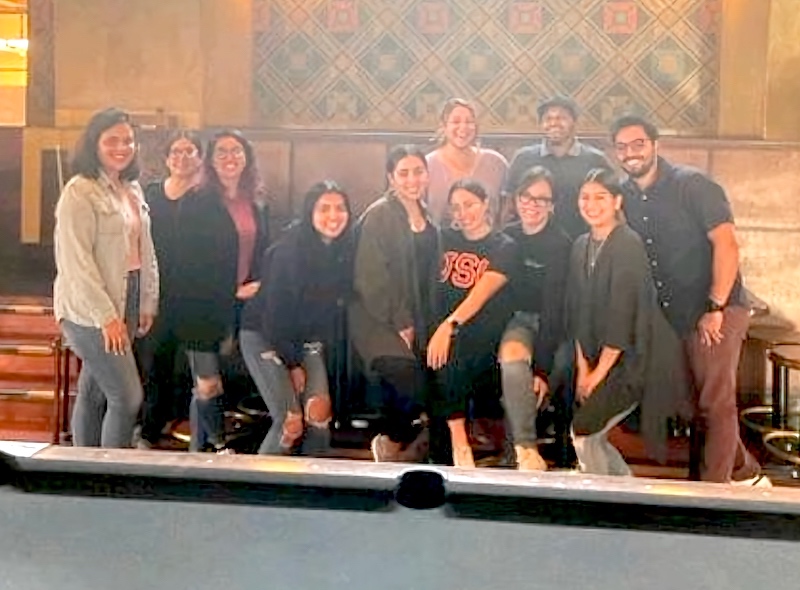AHTO: An Introductory Retrospective
April 27, 2022
by Global Initiatives Team
By Carly Martinez MA ’23
Editors Abraham Ramirez and Michelle Plevack
Entry-Level Professional Master’s students
When I received my acceptance email to USC, I — like many others before me — wondered how I was going to do it. I knew that I would need a support system to keep me going. My family and I were not communicating, so I was scared. I felt alone.
Partway through the fall semester of my first year, I learned about a new organization through Global Initiatives aimed at the Spanish-speaking community — Asociación Hispanohablante de Terapia Ocupacional, or “AHTO.” I was thrilled, and looked forward to being around people who spoke Spanish, which was reminiscent of my late grandmother who helped raise me.
However, I was concerned that I might not be “Mexican enough” to participate, despite speaking Spanish. ‘Was that enough?’ ‘Was my Spanish good enough?’
I anxiously brought this up during an early interaction with AHTO. When I shared my concern, this sentiment was echoed by other members who also questioned their identities due to imposed cultural markers, which can feel a lot like gatekeeping. I learned that, like me, they too were in this in-between place, where we were left asking ourselves where we belong and if we were enough.

¡Saludos de AOTA San Antonio! (Greetings from the AOTA Conference in San Antonio!)
I recently told a friend that the reason why microaggressions are so insidious, is that they’re often so small that they can make you question whether you are overreacting to a situation or if it even took place the way you remember. This has been my experience as a member of a minoritized group — the feeling that I am living through a continuous microaggression, and left wondering if I am making things up or should be happy with the way things are. Or, are there legitimate reasons to be unhappy and should I ask for more? It’s a bit like being in a toxic relationship, and it can mess with your head, particularly when it weighs on you alongside class assignments.
As I began compiling stories of my fellow students’ experiences, the triumphs and challenges overheard at AHTO meetings at socials and at conferences, I began to see connections that had not been previously apparent to me. That’s not only amongst Latine* students at Chan, but other minoritized students as well. Conversations have taken place that require action and advocacy. They still are, and they probably always will, leaving a need to ask for more on an ongoing basis.
This is why I am glad organizations like AHTO exist. They serve as places where I and others can verbalize our experiences and share them with others, allowing the space to process them in a way that leads to validation and support. My hope for AHTO is that it will continue to provide a platform for students to demand change from the university and express their needs in a way that will continue to elicit change, not only for the Latine population, but everyone who feels like they need to make themselves seen, heard and understood.
I hope AHTO will serve as a model for, and collaborator with students seeking empowerment and resources. It is important for us to realize our power, particularly when we work together, because it is only when we feel acknowledgement and action on the part of the division that we will be able to create goals that are SMART (Specific, Measurable, Attainable, Relevant, and Time-based). Isn’t that OK to want?

AHTO’s end-of-the-year social at Homebound Brewhouse on April 12, 2022
*I prefer to use Latine over Latinx or Latin@ because it works in both Spanish and English and is more inclusive. Latinx does not work in Spanish, so it is not the preferred term by some Spanish-speakers; instead it is looked down upon by many people living in the US and Latin America as a forced idea contrived by non-Latine, white folks. Please see this comic for more information and explanation.
⋯
Next by tag Community ⟩ Diversity ⟩
⋯





